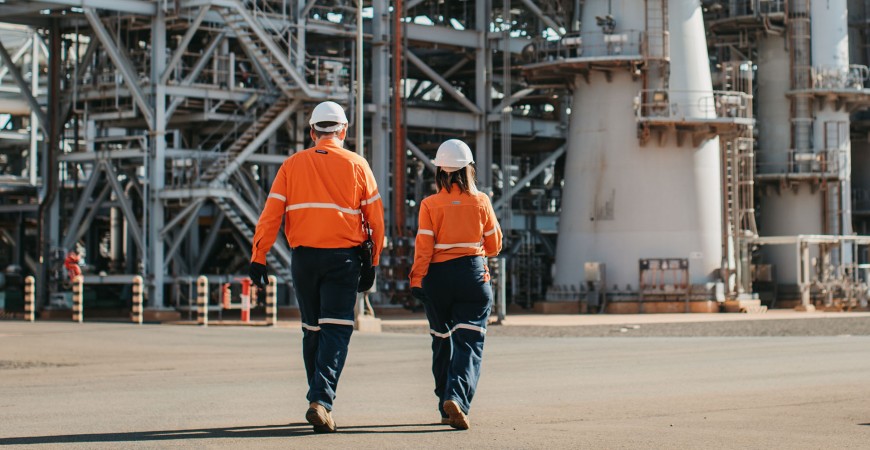For mining workers based in WA’s remote regions, there can be many challenges to mental health and wellbeing.
Working away from family and friends can be tough, and many people aren’t comfortable talking about the challenges of mental health – especially when they’re feeling isolated.
A 2018 report by the WA Mental Health Commission found one third of FIFO workers reported experiencing high or very high levels of psychological distress, including feelings of anxiety and depression.
But an innovative peer support program designed to get people talking is helping to benefit the state’s mining and resources workforce, support those with mental health issues and promote wellbeing in the industry.
A pilot project developed through a collaboration between Lifeline WA and the Chamber of Minerals and Energy of WA (CME) is already making a difference to the people on site who need it the most.
As part of the Resourceful Mind program, Lifeline WA provides peer supporters known as Minders with ongoing training and support for 12 months via core training, elective online modules and group coaching.
Minders are taught important skills, including how to recognise signs of mental health issues, listen to and support colleagues, have conversations about suicide, and assist others to seek help.
A total of 132 Minders took part in the initial pilot, and thanks to the trial’s early success, it is hoped there will be a broader rollout across the WA mining and resources sector.
Following the pilot, the Resourceful Mind program was evaluated by researchers from Edith Cowan University and found to be safe and effective.
Since the pilot concluded, the number of minders has already more than doubled with Lifeline WA and CME welcoming interest from different resources companies.
Lifeline WA chief executive Lorna MacGregor said the program had been designed specifically for workers in the WA resources sector.
“We understand that many people aren’t comfortable talking about their challenges with mental health, and we know from experience that men are less likely to ask for help,” she said.
“However, we believe workers in the resources sector may be more likely to open up to colleagues identified through the program as natural listeners, who have been trained to have difficult conversations.
“The program modules are delivered by our highly trained telephone crisis supporters who have extensive experience in suicide prevention and offering non-judgemental support.”
Note, Lifeline WA is a client of ReGen Strategic.
 ReGen Strategic
ReGen Strategic